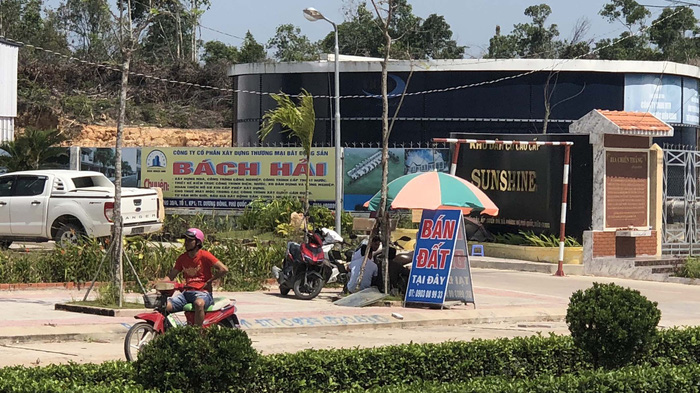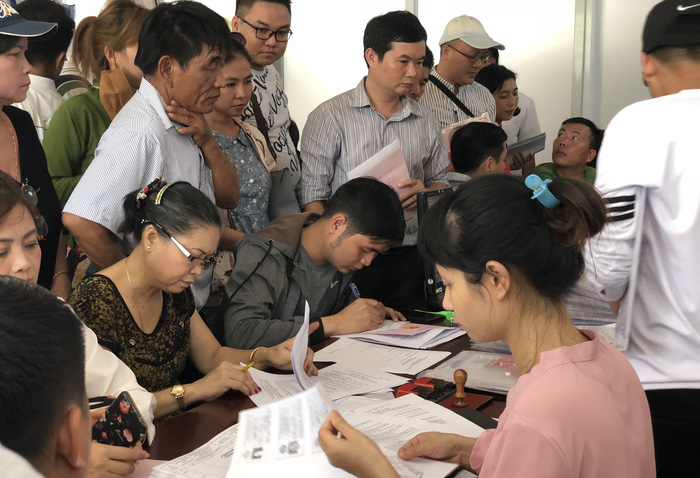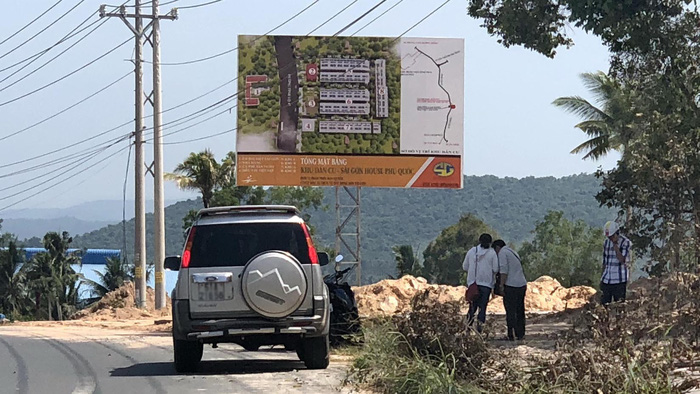Vietnam’s government inspectorate is set to examine the management of agricultural land on Phu Quoc, a tourist island off the southern province of Kien Giang, following a recent land fever.
Deputy Prime Minister Truong Hoa Binh has tasked the government inspectorate with the mission and reviewing the responsibility of those in charge of land management on the island.
Violations regarding the use of agricultural land have become highly complicated, threatening to ruin the island’s master plan, while authorities have yet to come up with any effective solution.
According to the observation of Tuoi Tre (Youth) newspaper reporters, forests along the route between An Thoi Town in the southern part of the island and Ganh Dau Commune in the north have disappeared.
Only empty land plots remain in the areas now.
On some pieces of land, people have built prefabricated houses in order to prove their ownership.
The sale of land and related projects is widely advertised in leaflets stuck on tree trunks and utility posts as well as billboards along the roads.
Phan Van Tan, a local land broker, stated that land plots in the center of the island have become much more valuable.
 |
| A sign advertising the sale of land is erected a long a street in Duong Dong Town on Phu Quoc Island. Photo: Tuoi Tre |
Buyers are getting increasingly interested in agricultural land, which is sold per unit of about 1,000 square meters.
In Duong To Commune, the type of land is offered at around VND18 billion (US$792,000) per 1,000 square meters. The price was only VND2.5 billion ($110,000) in mid-February.
Land prices are feverishly discussed at local cafés, restaurants, and offices.
Aside from tourists, well-off people now visit Phu Quoc daily to seek for prime land.
Traveling on their automobiles, these wealthy speculators search the whole island for potential pieces of land in droves.
Statistics of local authorities showed that about 6,000 cars and 80,000 motorbikes have been registered by local residents, along with a large number of vehicles transported from the mainland to the island for non-locals’ travel demand.
The situation has resulted in traffic jams during rush hours at several locations.
 |
| People carry out procedures for land transactions at a notary public office on Phu Quoc. Photo: Tuoi Tre |
Who benefits?
According to Dang Duc Gioi, director of a land office in Duong Dong Town, not many locals will benefit from the current land fever as they already sold their properties in the first fever a decade ago.
Others have given up their land to the construction of resorts and hotels, Gioi continued.
“Only land speculators will earn the most profits. Brokers can also pocket a decent amount,” he remarked.
H., who lives in Cua Can Commune, said he had sold about 22,000 square meters of his land at VND3.9 billion ($171,600) per 1,000 square of meters via a broker.
A few days later, H.’s buyer resold the land for VND4.2 billion ($184,800) per 1,000 square meters.
However, speculators have been more cautious following information regarding the upcoming inspection, said M., a young broker.
Despite the high number of buyers, not many successful transactions have been made lately.
According to M., it is not that simple for brokers to strike a deal and obtain commission, as they are required to spend tens of millions of dong (VND10 million = $440) buying and updating the planning maps of the island.
Many buyers want to be certain about the legality of any land plot before making their payment.
Like us on Facebook or follow us on Twitter to get the latest news about Vietnam!




















































